Was the Russian Expo worth going to?
We decided to attend the ECOM Expo in Moscow for the first time in 7 years. It’s one of the biggest e-commerce events in Russia and Eastern Europe. Our team wondered whether Russian e-commerce was worth the hassle or not. Below, we will share with you some key takeaways from the expo.
ECOM Expo vs. IRCE
For the last 6 years, Convermax regularly exhibited at IRCE in Chicago. After the internet retailer conference of such scale, ECOM Expo seemed rather small. During the event, only 267 companies presented their technological solutions, which is slightly more than half of all the exhibitors at IRCE last year. There were a few unique and creative conference booths, but most of the companies kept their presentations quite simple.
The registration went rather fast and smoothly, but as we learned later, it was the only thing that was well-organized. The opening session of the day had 7 presenters, and all of them lost at least 30 seconds of their time waiting for the presentation clicker to be fixed. Microphones occasionally stopped working during sessions and meet-ups. Only one conference room was isolated from the exhibition hall, in the other two attendees may not hear the speaker because of external noises. It was something we’ve never experienced in Chicago.
The technical problem wasn’t the only issue - the quality of the speeches also left a lot to be desired. Only a few presenters were memorable and provided insightful quality reports, while all others couldn’t fit into the timeline or explain clearly what their product is really about. Many presenters just advertised themselves without bringing any value to the session attendees. It was obvious that the audience wasn’t engaged in the discussion or willingly asked questions afterward.
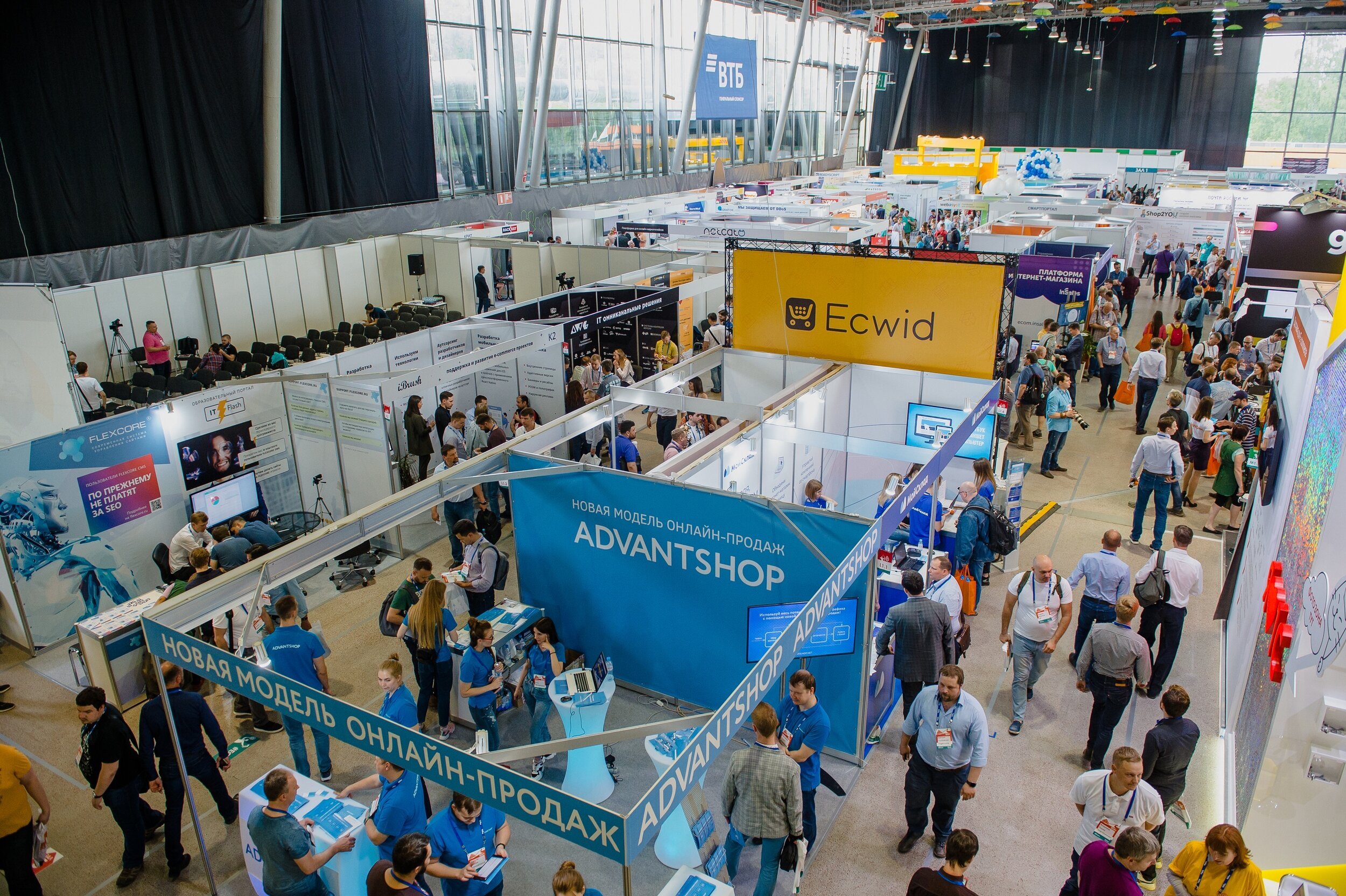
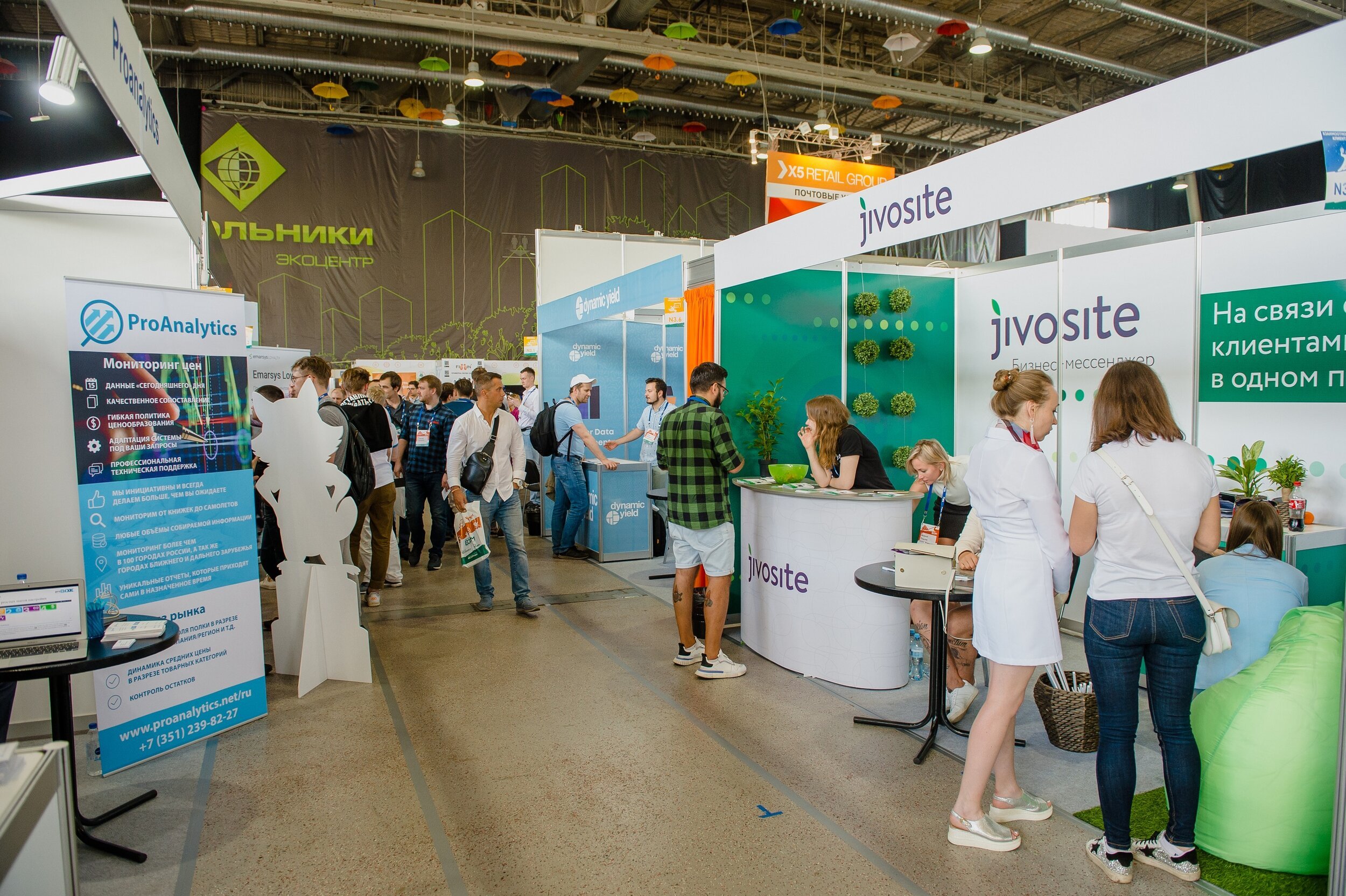
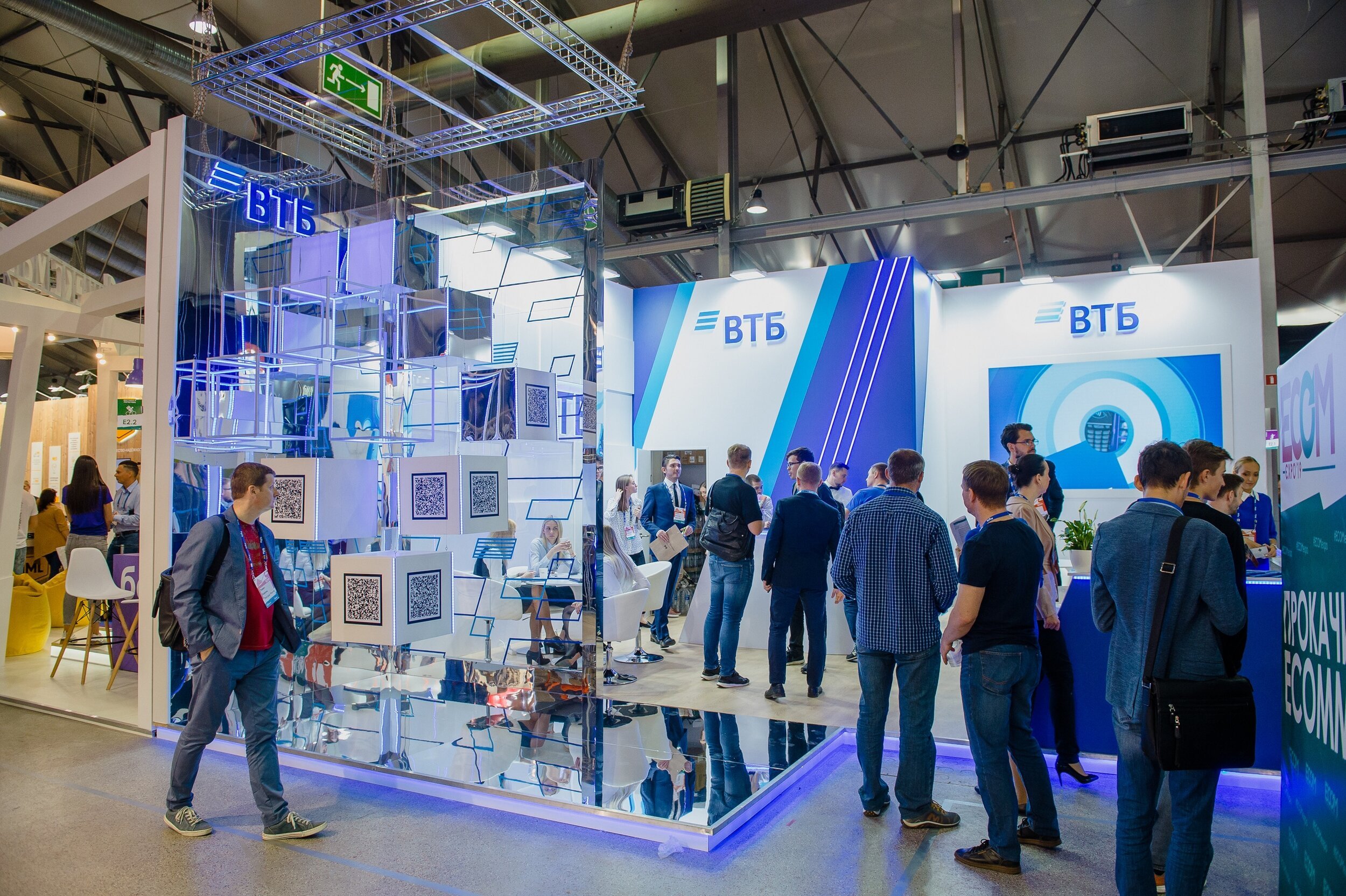
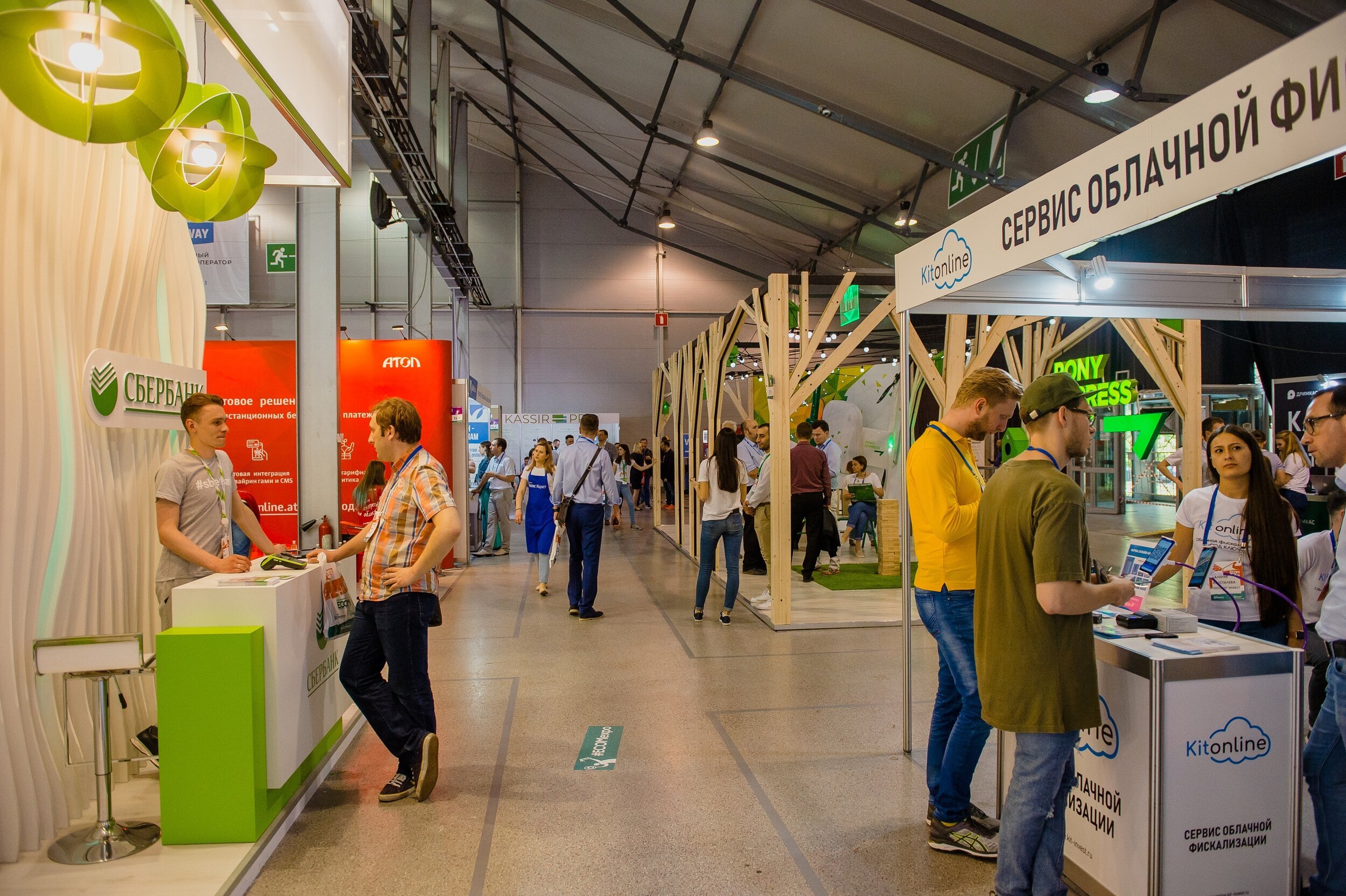
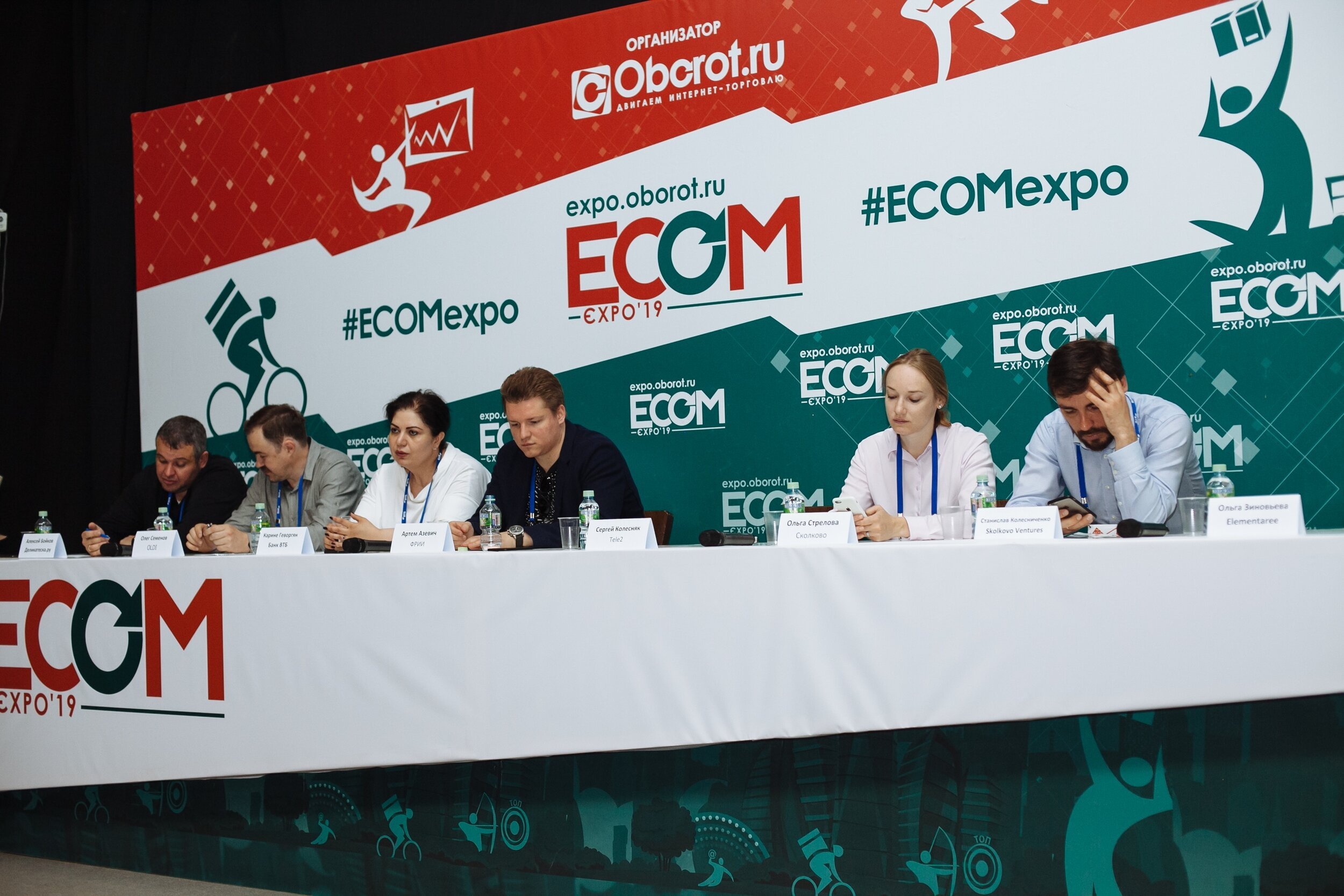
Limited Russian Online Retail
The Russian e-commerce market is rather small. As Efim Alduchov from Omni Solutions shared with us, there are only 800-1000 large and medium internet retailers. With the rise of local online retailers (Wildberries, Ulmart, M.Video) and marketplaces (Yandex.Market, Beru!), manufacturers are less enthusiastic about developing their own online stores. The number of key market players notably reduced in recent years.
Another remarkable difference between US and Russian e-commerce is the types of platforms retailers use. Bitrix - a monopoly in CMS market in Russia - provide the solution for online shops as well, and 67% of e-commerce owners prefer it to foreign solutions, even though it’s not the most technologically-advanced platform. Several e-merchants and developers complained that it’s difficult, or sometimes impossible, to integrate external services to it. Nevertheless, only 3% of businesses manage their store on Magento, 2.3% - on Opencart, and Shopify is hardly utilized at all.
Another significant contrast to the US is that the Russian e-commerce market is not oversupplied with a technology vendor. We only met two companies which can be considered our business rivals.
Summary
All in all, the ECOM Expo was insightful and brought some new perspectives. But, whether we should exhibit our own conference booth next year or not is still a question for us.
Russian online retailers face the same challenges as U.S. ones. E-merchants want to reduce the number of returns, enlarge their loyal customer base, and increase sales. Such AI-based solutions as personalized product recommendations, visual and voice search are gaining popularity among e-commerce owners. The size of the Russian e-commerce market and speed of technology adoption is far from those in the US, the UK, and Brazil, but they are gradually evolving. A 2018 Morgan Stanley study predicted a nearly threefold growth for the market over the next five years, so it has tremendous potential.


